How to Find and Hire a Great Landscape Contractor
You’ve approved your landscape architect’s final site plan for your landscape design, and now it’s time to get the project built. You can pay the landscape architect to select a contractor for you, or you can hire one on your own. Like other building professionals, landscape contractors have different skillsets and levels of experience. A landscape contractor does not need an award-winning portfolio of work in order to do a great job. The work of the contractor comes down to getting the job done on budget and on time while providing good, reliable service and quality installation work.
There are different ways to hire a landscape contractor to build your project. If you have worked with a landscape architect on a design plan, you can further engage him or her to steward the hiring of a contractor for building the project. Or, you can do the work of finding, screening and hiring a landscape contractor on your own. Whatever your path is for hiring landscape contractors, there are things you should know about their qualifications and how they work with designers. Use this article as a guide to hiring a landscape contractor so that you find the best one for your project.
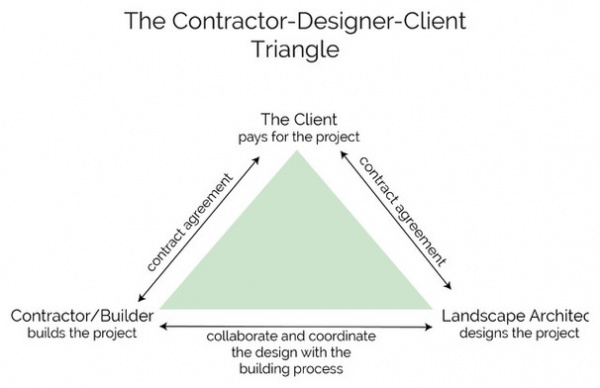
How to Find a Landscape Contractor for Your Project
As mentioned, there are two main ways to find a contractor: work with the landscape architect to select one or research and hire one on your own.
You have the option to pay the landscape architect who designed your property to do construction administration. That’s a technical term in the landscape industry for managing the administrative tasks of getting the installation under way. The landscape architect is then responsible for getting estimates or bids for the work and recommending the best company to you. The architect does not have to send the project out for pricing to several companies. Instead, the landscape architect will probably have a working relationship with a local contractor and will recommend that company to you.
Once you sign an agreement with the contractor, the landscape architect and builder will work together to ensure that the work will be built according to how it was designed.
This method sets up a relationship like a triangle, in which you, as the client, have a contract agreement with the landscape architect for design and construction administration and a separate agreement with the contractor for installation. The tricky part is that there is no contract directly between the architect and the contractor, and the architect does not act as the contractor’s supervisor or boss. However, it is in the best interest of the contractor to build the project according to how it was designed, because the design has already been approved by the client. Ideally, the contractor’s agreement with the client will state that the project is to be built according to the landscape drawings and specifications, as prepared by the landscape architect.
The second option is to hire a contractor on your own. This eliminates the triangle relationship and will work well if you are savvy with building processes or if your project is very straightforward. If you are looking to have simple work completed, by all means hire the contractor on your own without involving an architect. If you do have detailed design drawings from the landscape architect, you can use them to get estimates, because you paid for the design services and you are free to use the plans to get the project built. This use of plans is often stated in the design services contract. The disadvantage of hiring the contractor on your own is that you won’t have the design help of a landscape architect when issues arise. For example, the contractor may not be able to find a particular type of stone and will have to substitute a different type. Without the landscape architect to provide design feedback, you’d have to make the decision alone. This might be fine for people who are knowledgeable about materials and construction lingo, but overwhelming for someone without much experience in design and construction.
A related option is to work with a landscape design-build firm that combines the design services with the installation. I will be covering this topic in a future ideabook.
Regardless of which route you choose, it’s good to know what to expect from the contractor so that you feel confident signing a contract agreement.

How to Hire a Contractor on Your Own
If you are hiring the contractor on your own, you need to know where to look and how to review the company’s credentials.
Where to look. There are several ways to find your contractor. Doing a broad Internet search might not yield the best results, so it’s better to focus your search and find a local company. Here are a few good resources:
Search Houzz for landscape contractors in your area.Ask your friends and neighbors for referrals.Check with your local chamber of commerce.Ask your local nursery or garden store for a referral.
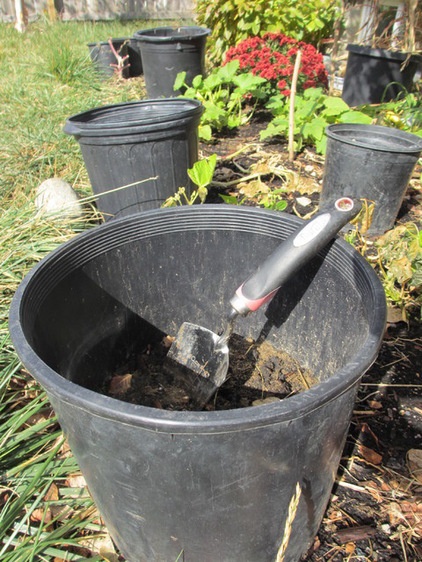
Review credentials. You want to hire a contractor who is knowledgeable, easy to work with and reliable. At the end of the day, your primary concern is hiring someone who will build the project on time and on schedule using quality materials and best practices. Here is a checklist of items to request that will inform you of the contractor’s credentials:
Licenses. Landscape contractors have licenses regulated by the state. Furthermore, your town may have additional requirements for a contractor performing work. Contractors will list their license number on Houzz and on their website. You can search on your state’s regulated professions website using this number to check that a license is in good standing.Insurance. A landscape contractor should have general liability insurance and worker’s compensation insurance. Ask to see the certificate of insurance. Client references. Call a few former clients and see if they were pleased with the services. It may be a red flag if a contractor has a hard time providing references. Some specific questions to ask of references include: Was the contractor reliable? Was the project completed on schedule? Are you pleased with the quality of the work? Photos showing quality of work. Landscape contractors install plantings, paving, grading systems, decks, site walls, sod, seed, fences and water features. They have to be generalists, because they work with a variety of materials. They hire subcontractors to do specialty work around pools and other water features, irrigation, metalwork and any other work that’s outside their area of expertise. Ask for some detailed photos of projects they have built to demonstrate quality building techniques.Experience with similarly sized work. Contractors work on a large array of project types, but most focus their work in terms of scale. This is important because their crew will bring a level of expertise that’s appropriate for the workflow and staging of your project.
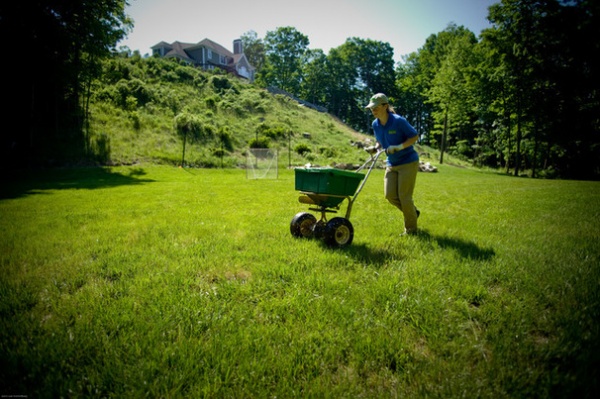
Ask about sustainable practices. The contractor will be disrupting the site and installing new materials, which will impact the environment. Make that impact less damaging by using the most sustainable materials and methods possible. Some contractors have been using sustainable practices for a long time, while others are just catching on to the concept. Let the landscape contractor know if sustainability is important to you by discussing it early.
You can gauge how well versed a contractor is in sustainable practices by asking some questions:
What organic and sustainable practices do you use? If the contractor hesitates to answer, try asking more specific questions, like the ones below.Where will the materials be sourced from? It is best to use local stone and wood for your project to decrease the carbon footprint. Sourcing local materials can also save you money, because you won’t have to pay for materials to be shipped long distances. Do you recycle plant containers or return them to the nursery? Most wholesale nurseries take back plastic plant containers and clean them for reuse. This might seem like a small thing, but those little containers can add up to a lot of plastic in projects with large planted areas. The contractor is responsible for hauling away materials once the job is done, so make sure they will be recycled or brought back to a nursery for reuse.Do you use a mulch that’s free of chemicals and additives? Chemicals and dyes are used to make mulch in different colors, and they’re unnecessary additives. Go chemical free. The chemical-free mulches are usually less expensive anyway if they are from a local source. Do you use power tools or hand tools? A lot can be accomplished with hand tools, and some compact sites will even require the use of hand tools over power tools and motorized utility vehicles. Most contractors use a combination of both types. If your project is small, there won’t be a big need for big power machinery.

Know who will supervise your project. It’s helpful to know who the key players are in building your project, so that you’ll know who you will be speaking with as the work progresses. Larger companies, with several crews and supervisors, often have multiple project managers, and your project will be assigned to one supervisor and crew team. Small companies (with one or two supervisors) often have one main company manager, who is also an owner-founder of the company. You should know who the point people will be for your project, so you’ll know who to talk to as issues arise.
The site supervisor is the person responsible for leading the work crews each day. The supervisor is the person in charge, whom you will be communicating with onsite during the building process. If you have hired a landscape architect for construction administration, the landscape architect will check in with the site supervisor to keep track of progress and let you know if any issues arise.
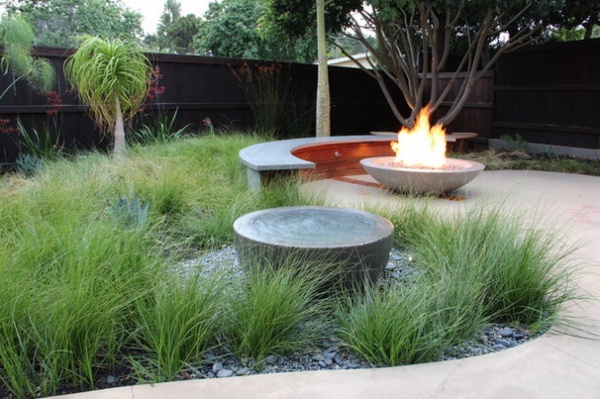
Review the subcontractors. As a generalist, the landscape contractor relies on specialty artisans and workers to do custom work or build components with special materials and techniques. Along with knowing who will supervise the work, you will want to know who is responsible for specialty and artisan work, so that you can make sure those people are qualified. Ask for detailed information about the subcontractor’s qualifications, using similar questions to those you asked the landscape contractor.
The contractor hires subcontractors directly and typically has a roster of skilled people for special work. Common subcontracted work includes irrigation (some states require a specific irrigation license), pool installation, pond installation, specialty work (with materials like stone, wood, metal and concrete) and artisan work with sculpture, mosaics or ornate custom fabrications.
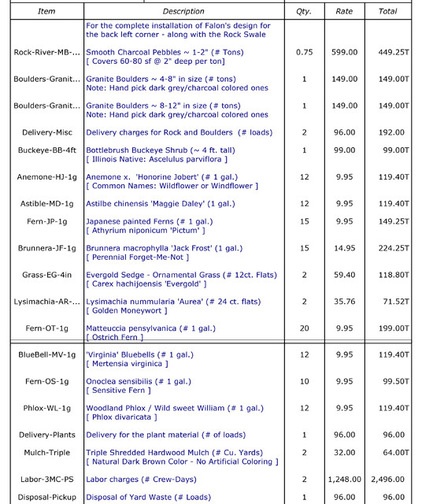
How much it will cost. There are two ways to get a cost from a contractor: an estimate or a bid. The differences between the two are explained in detail here.
When hiring a landscape contractor, you may want to use the bid, or fixed-price, method if you have a specific price that you do not want to exceed. However, the estimate is easier to compare among companies, because you’ll get detailed line item costs for the project. The landscape architect’s site plan for the project helps the contractor provide a more precise estimate.
Pictured here is a section of an estimate for a small swale garden installation from a landscape contractor. Landscape construction estimates include the materials, labor, delivery fees, waste disposal fees, project management fees (typically included in the labor cost) and anything else required to build the project. The cost of plants and materials is lower than what you would pay for plants at a retail store, because contractors purchase from wholesale distributors. A contractor will provide a detailed estimate with line items, like the one here. Compare estimates from several companies to make your selection.
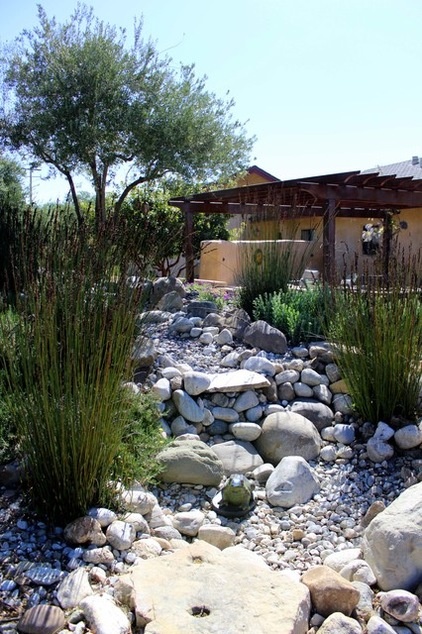
Making a Decision
It’s ultimately your choice as the client to pick the company you prefer. This means that you can override the landscape architect’s suggestion if there is another company you want to hire. The implication of suggesting someone else is that the architect and contractor will need to meet early in the project to build trust and a working relationship prior to the start of construction.
Base your decision on the best combination of qualifications, experience and cost to do the work. The cheapest estimate might not be the best choice, nor might the company with the most experience. It’s also helpful to meet potential contractors in person. The contractor will want to walk your property — or at least drive by — before providing an estimate anyhow, so use the opportunity to meet and get a feel for how professional and reliable he or she is. If you are vetting contractors on your own, request that they visit the site and have a short meeting with you so that you can talk in person. The background check can be done online and by speaking with the company over the phone.
Once you’ve made your selection, you will need to sign a contract that outlines the scope of work, warranty on plants and schedule for project completion.
More:
Find a landscape contractor
More guides to working with building professionals












